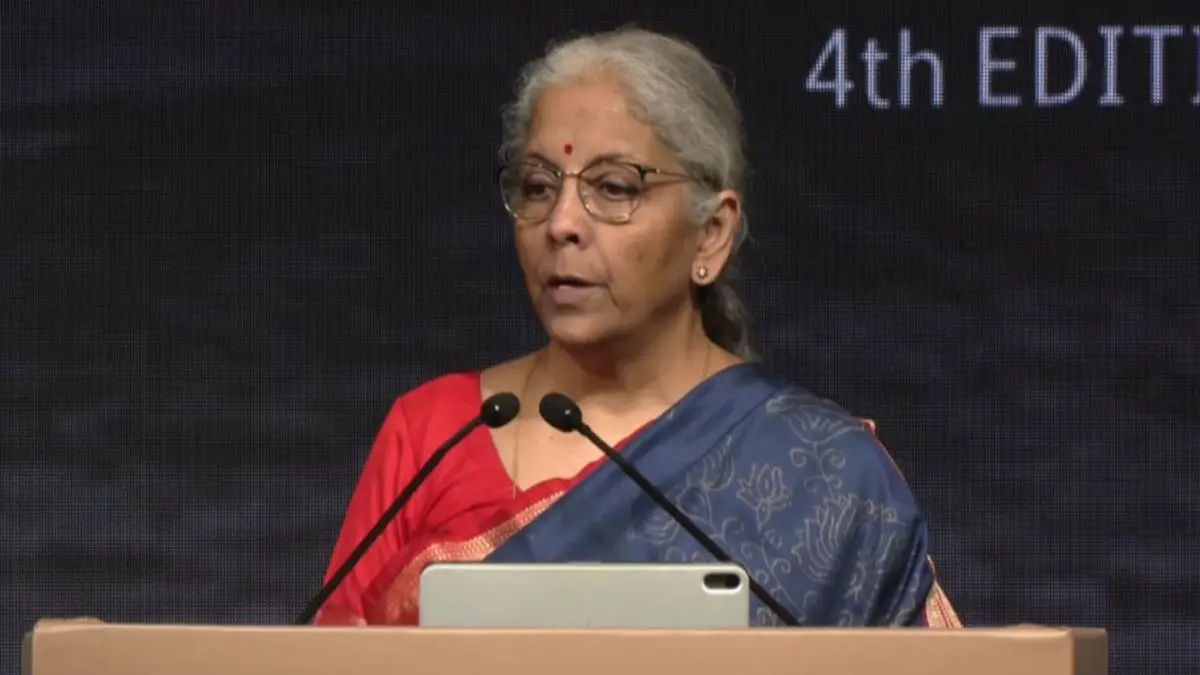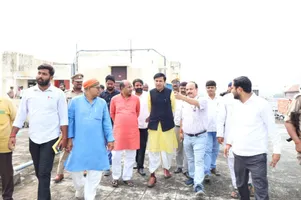
Nirmala Sitharaman on Tariffs | Image:
ANI
During her inaugural speech at the fourth edition of the ‘Kautilya Economic Conclave 2025’ held in New Delhi on Friday, Finance Minister Nirmala Sitharaman emphasized India’s significant role as a stabilizing influence in the global economic landscape. She also warned of the potential risks stemming from imbalances and volatility in the current climate.
In her address, which revolved around the theme “Seeking prosperity in turbulent times,” the minister pointed out that the foundational aspects of the global order are undergoing profound changes, with trade dynamics, strategic alliances, and financial systems being altered by shifting geopolitical landscapes.
Sitharaman characterized the current situation as ‘turbulent,’ suggesting that to simply label it as such would be to downplay the magnitude of the challenges faced. She remarked that uncertainty has become a pervasive element in today’s world.
“The global order is evolving. Trade patterns are being redesigned, alliances are being scrutinized, and investments are being redirected in accordance with geopolitical influences, while shared commitments are also being reassessed,” noted Sitharaman.
Reflecting on the dynamics of multi-polarity, the minister observed that the supremacy of a single global power is being challenged, as Asian nations increasingly promote alternative growth and governance models.
“What we are encountering is not merely a momentary disruption but a significant structural transformation. The pressing questions are: What will emerge from this transformation? What new equilibrium can we expect? Who will be instrumental in shaping it, and under what conditions?” she posed.
Despite the challenges, Sitharaman expressed optimism about India’s economic ascent, which she attributed to robust domestic factors, including fiscal discipline, strategic reforms, and managed inflation. She underscored the importance of these elements in providing stability in a volatile global environment.
“Our growth trajectory is firmly rooted in domestic factors, which helps mitigate the effects of external shocks,” the minister emphasized, while also urging caution against underestimating the situation.
Her remarks highlighted the challenging trade-offs that developing nations are grappling with, including the need to balance energy transitions with energy security, economic growth with sustainability, innovation with labor market dynamics, and the high costs of borrowing against the necessity for investment.
“These trade-offs are complex and cannot be overlooked,” she remarked, pointing out that efforts to derisk and decouple are reshaping globalization and creating significant structural imbalances.
The minister identified trade, financial, and energy asymmetries as major distortions within the existing global order, emphasizing that the future challenges lie not only in managing uncertainty but also in addressing these imbalances effectively.
“We must contemplate how to construct a global framework in which trade is equitable, finance serves productive purposes, energy remains both affordable and sustainable, and climate initiatives align with developmental goals,” the minister urged.
Moreover, the finance minister highlighted the increasing influence of technological advancements and financial disruptions. She pointed out that innovations such as stable coins and novel monetary systems, alongside escalating geopolitical tensions, compel nations to adapt to prevent exclusion from the global economy.
“The transformation of global supply chains is being driven by sanctions, tariffs, and decoupling strategies. These developments present both vulnerabilities and resilience for India,” she noted.
“Our ability to withstand economic shocks is robust, while our economic influence is also in a state of evolution. The choices we make now will determine whether this resilience will serve as a foundation for leadership or merely act as a buffer against uncertainty,” she remarked.
In her concluding remarks, the minister underscored that crises often pave the way for renewal and urged developing countries to take an active role in shaping global outcomes.
“We cannot afford to remain passive observers in a world where decisions made elsewhere dictate our futures. It is essential that we become active participants, influencing outcomes where we can and safeguarding our autonomy when necessary,” she asserted.
Emphasizing the significance of open dialogue during the three-day conclave, the finance minister concluded, “Let us view this moment not just as a crisis but as a pivotal turning point. We should engage in conversations not only to reflect on the future that awaits us but also to outline the framework for the future we aspire to create.”
